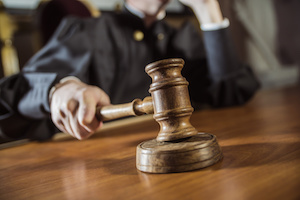The United States Supreme Court has denied a petition for certiorari filed by Imperium IP Holdings (Cayman) Ltd, allowing a Court of Appeals’ opinion regarding an expert to stand over the assessment by the jury.
Original Lawsuit
Imperium IP Holdings (Cayman) Ltd. is a holding company for intellectual property rights that were owned by ESS Technology. In the early 2000s, ESS was a leader in developing and manufacturing digital cameras for cell phones. ESS sold its products across the globe to companies such as Motorola, Ericsson, LV, Nokia, and Samsung.
ESS patented its own digital camera innovations and also acquired the portfolio of another company called Pictos Technologies, Inc., which was the owners of U.S. Patent No. 6,271,884, or the ‘884 Patent. The ‘884 Patent enables proper video imaging under fluorescent lighting by eliminating the flicker that is undetectable by the human eye, but captured by video recordings.
Beginning in 2010, Imperium began enforcing its patent rights against a number of multinational corporations that had used its technology in video recording devices, single-lens reflex cameras, automobiles, and cellphones. Seven of the eight largest cell phone manufacturers entered into a licensing arrangement to use Imperium’s technologies, including the ‘884 Patent. The total value of these licenses exceeded $22 million. Only Samsung refused to enter into a licensing agreement.
In June 2014, Imperium sued Samsung in the Eastern District of Texas, alleging that Samsung willfully infringed three patents related to digital camera technology.
After a six-day trial, a jury found that Samsung had willfully infringed Imperium’s patent rights. The jury found Samsung liable for a judgment of $4.84 million. The district court awarded treble damages in light of Samsung’s knowing and willful infringement, discovery misconduct, and repeated false statements and misrepresentations.
U.S. Court of Appeals for the Federal Circuit
Samsung appealed. The U.S. Court of Appeals for the Federal Circuit reversed the verdict. In its decision, the court stated that it agreed with Samsung that “that the only reasonable finding on this record is that the ’884 patent claims at issue here are invalid for anticipation.”
The court noted that it came to this decision based upon the court’s interpretation of the expert witness testimony during the jury trial.
Imperium IP Holdings Petition
In July 2018, Imperium Holdings petitioned the United States Supreme Court for a writ of certiorari, arguing that the Court of Appeals for the Federal Circuit had usurped “the Constitutionally-mandated role of juries to find the facts and decide issues of witness credibility.”
The question presented to the Supreme Court was “Whether an appellate court may reverse a jury verdict based on its own view that expert testimony was credible, ‘unrebutted,’ and ‘uncontradicted,’ or instead whether the Seventh Amendment requires the jury to make determinations about credibility and the weight of the evidence in determining whether a party has properly carried its burden of proof.”
The United States Supreme Court denied the petition, which allows the decision by the U.S. Court of Appeals for the Federal Circuit to stand.




